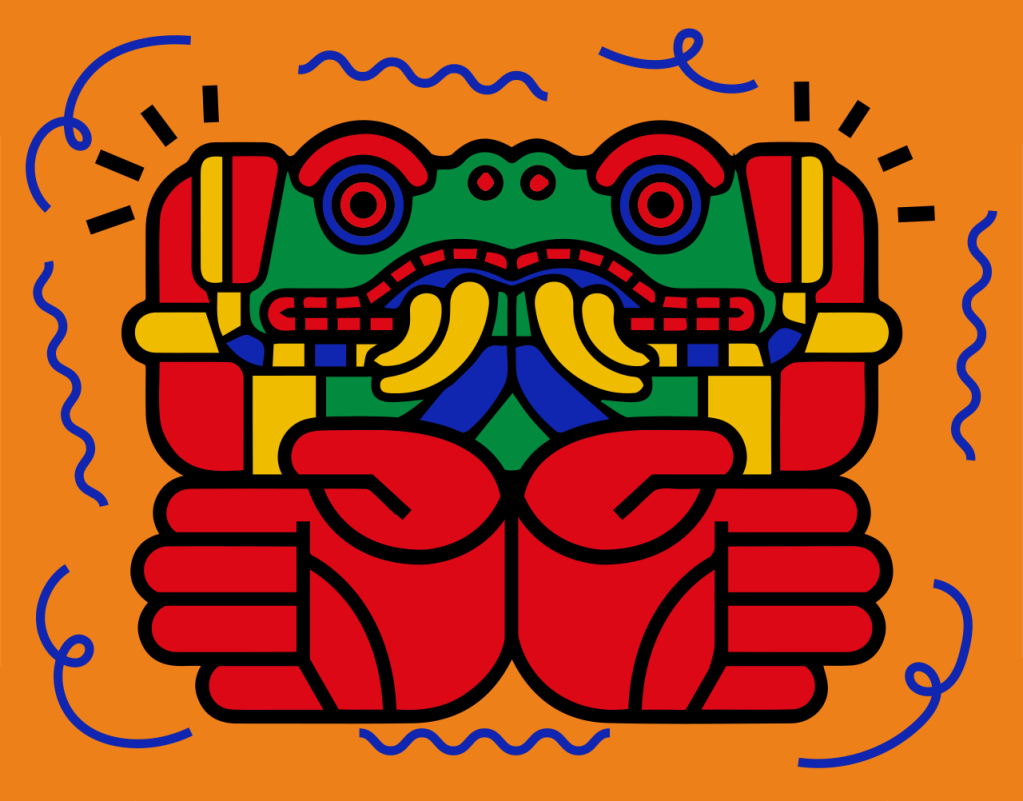Today marks the start of a Heritage Month focused on celebrating the history, culture, and influence of Latinx communities in the United States.
The official name of the month itself (National Hispanic Heritage Month) is a living example of the power of language — its history and inequities in who controls it, and its impact on the perceptions and identities of people and their communities.
At the Wikimedia Foundation, the nonprofit that operates Wikipedia and its companion free knowledge projects, we know words matter. We are committed to creating an inclusive, equitable living record of history, stories, and contexts. This often includes righting the historical record — and expanding it to include the perspectives of people left out by systems of power and privilege.
This Latinx Heritage Month — what we have chosen to call this annual celebration — we are expanding this traditionally US-specific commemoration to celebrate the richness of our global Latinx Wikimedia community, while recognizing the work still needed to be done to achieve authentic representation online.
We invite you to explore the origins of the term Hispanic; consider the legacies of colonization and the impact of language; and to hear firsthand from some of our Latinx Wikimedia contributors around the world on the importance of filling knowledge gaps about Latinx people and topics on Wikipedia and other Wikimedia projects.
Why “Latinx Heritage Month”
The term Hispanic commonly applies to countries with a cultural and historical link to Spain. In other words, it applies to countries previously colonized by Spain. In the US, “Hispanic” has become a broad catchall, referring to persons with a historical and cultural relationship with Spain regardless of their race and ethnicity. For these reasons, many have contested the term and flagged its negative connotations and racist undertones.
When it comes to describing their individual identities, recent research from Pew reveals that just over half of “Hispanic” and “Latino” people have no preference between the two terms. In some cases, the labels are used interchangeably. Another more recent identity label to emerge is “Latinx.” Although not widely adopted, it is considered a more gender- and LGBTQI-inclusive term — and what we have chosen to use during our celebration this month.
Latinx content gaps on Wikimedia projects
Wikipedia and other Wikimedia projects, sadly, do not currently reflect the world’s diversity. This results in a less rich, complex, and accurate picture of our world, its people, and its knowledge on our projects.
Preliminary data from a recent Foundation survey of people in the US indicates that Latinx people, especially women, are dramatically underrepresented among Wikipedia contributors and readers in the United States. The data show that just 22% of Latinx women feel represented on Wikipedia, and only 31% of Latinx women in the US use Wikipedia. Data from our annual Community Insights Report also shows Latinx people in the US are severely underrepresented in our communities, representing only 5.2% of Wikimedia contributors.
When it comes to the content represented on Wikipedia at large, we know from the Oxford Internet Institute that there are more Wikipedia articles written about Antarctica than many countries in Latin America.
Perspectives of Latinx Wikimedia contributors
Nearly 20 years ago, the New York Times said that one day, the name of this month may change to “Colombian-Dominican-Cuban-Mexican-Puerto Rican-and-Other Heritage Month.” Why? Because the Latinx community is not monolithic. It is richly, beautifully complex, made up of an array of different identities, cultures, and experiences.
Our goal is for Wikimedia projects and contributors to reflect this rich diversity. Wikipedia is a mirror of the world’s biases — to deliver on our commitment to knowledge equity, we must address barriers that prevent people from both accessing and contributing to free knowledge.
To shed light on our efforts to do just that, we interviewed five Latinx Wikimedia contributors on their experiences in our movement, why they are committed to closing knowledge gaps, and what they want people to know about their heritage:
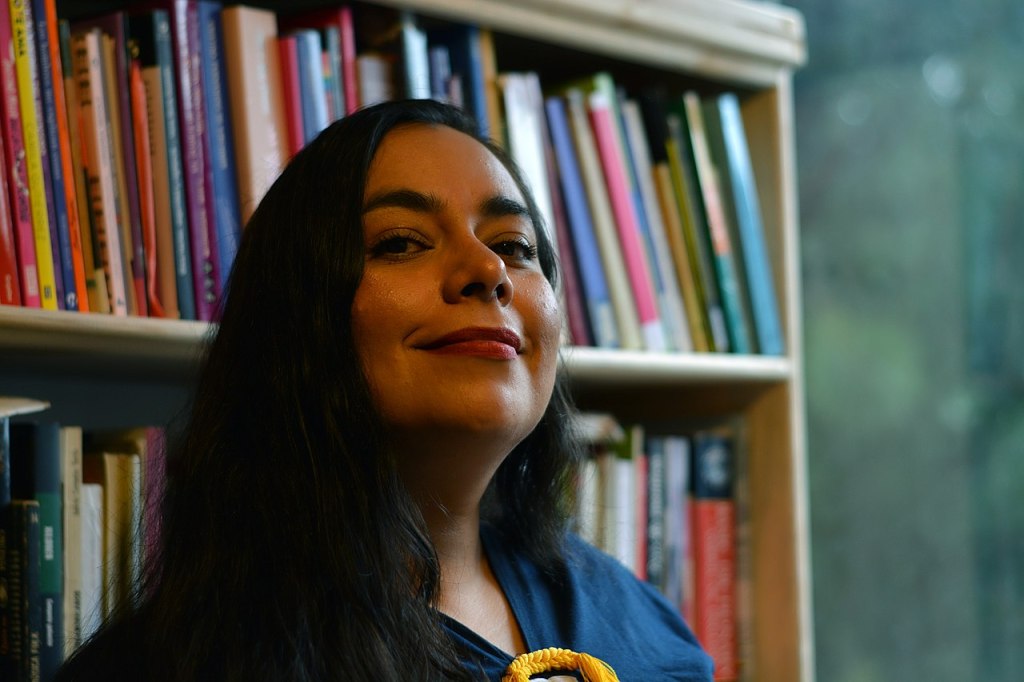
Carmen Alcázar (User:Wotancito) is a member of Wikimedia Mexico and a new Wikimedian of the Year 2021 Honourable Mention winner. She started the Editatona project to increase gender diversity on Spanish Wikipedia in 2015, which has since grown to host 60 events in Latin America.
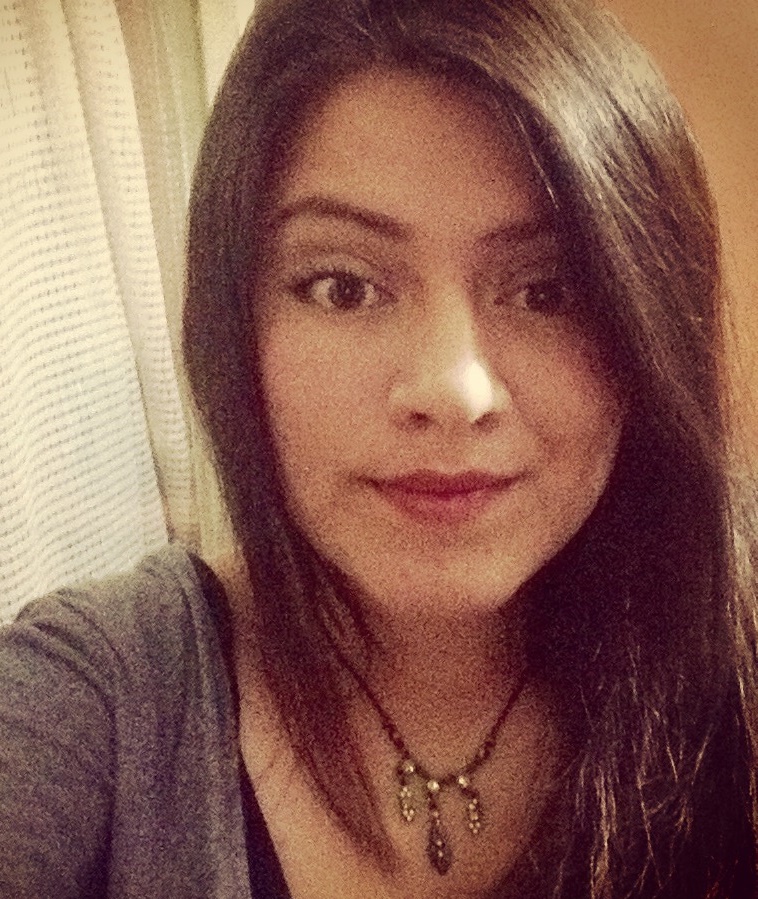
Mónica Bonilla-Parra (User:Mpbonillap) is on the board of Wikimedia Colombia. She is a linguist and researcher who uses Wikimedia projects to preserve and promote the culture and histories of Indigenous communities in Latin America. She coordinates the Wayuu Digital Project of ISUR and Fundacion Karisma, supporting media literacy processes in schools of the Wayuu community in the Colombo-Venezuelan Guajira.
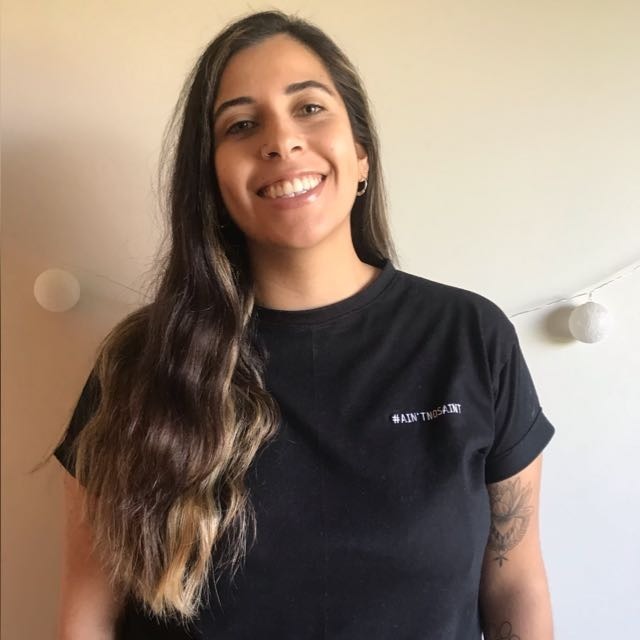
Carla Toro Fernández (User:Soylacarli) works with Wikimedia Chile to host editing events on Wikimedia projects to improve content on gender, human rights, culture, science, heritage, and more. She also edits Wikipedia in a volunteer capacity, watching for vandalism and verifying information. On Wikidata, she does data quality control and uses queries to identify content gaps.

User:carlillasa is a member of the Wikimedistas de Bolivia user group. She writes Wikipedia articles about Bolivia, uploads photos, and gives editing workshops in collaboration with fellow volunteers. One of the first articles she wrote was on her favorite Bolivian novel, Intimas, by author Adela Zamudio.
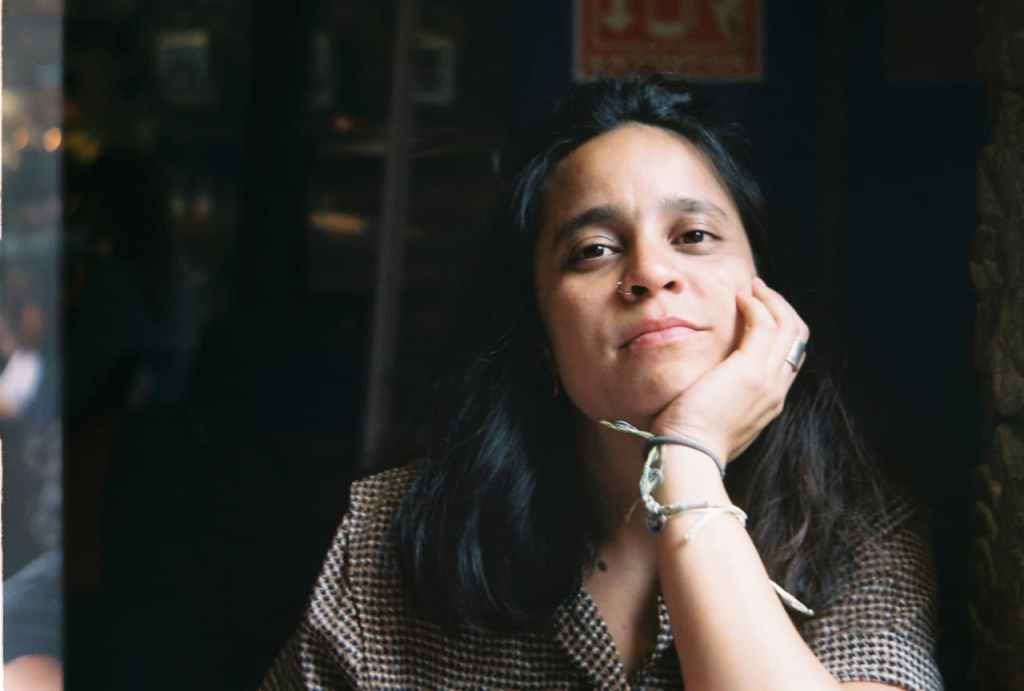
Selene Yang, who works on the DEI team at the Wikimedia Foundation, is a co-founder of Geochicas, a group of women who work to close the gender gap in the OpenStreetMap community and also works towards bridging the mapping community with the Wikimedia community. She has also led edit-a-thons for the Art+Feminism initiative with TEDIC, a digital rights defender organization in Paraguay, to produce historiographic reviews on the roles of women in the construction of the modern Paraguayan state, and raise awareness of the importance of Wikipedia for the restoration of collective memory, respectively.
Why should people care about filling knowledge gaps about Latinx people and topics on Wikipedia and other Wikimedia projects?
- “As on Wikipedia, we need all versions of history. What we write, do, share is not complete without the vision of women, of the global south, of postcolonial realities, of dissent. We have to ensure that there are seats for women. We have to commit to them having a good experience in our space.” —Carmen Alcázar
- “The history of Colombia and Colombians on Wikipedia has been told and narrated from places other than Colombia, a situation that generates many biases in the information, but that we can change by involving more Colombians in the projects, in the communities and in their construction. To the extent that we involve more people, more voices, more languages, we will truly fulfill the mission of the Wikimedia movement: to empower and encourage people around the world to gather and develop neutral educational content under a free content license or in the public domain, and to disseminate it effectively and globally. Ultimately, closing the gaps in content, participation, and representation will strengthen and grow the community of volunteers, who make the community exist, continue, and advance.” —Mónica Bonilla-Parra
- “I feel this is very important because people access the internet — and particularly Wiki projects — to find information and to know more about a subject. So, what happens when the information is simply not there, or when the information provided is shown from an outsider’s perspective? It’s crucial for content about Latin American issues and people to be written from a local point of view, to avoid stereotypes. Furthermore, in these times when the internet is the place where we preserve our history, the fact that there are information gaps on Latin American topics makes us invisible and keeps us out of history. That is basically what information gaps do these days, they leave you out of history, which is unacceptable.” —Carla Toro Fernández
- “We are not represented on the Wikimedia projects, which are the window to knowledge on the internet. It’s difficult for the rest of the world to understand 1) how complex and diverse our reality is, and 2) we, ourselves, can understand the diversity of the region that we live in. I believe it’s fundamental to be able to go on Wikipedia and see a photo of your city, a photo of your favorite regional dish, an article about your favorite national author. We need to create content for and by us, to not have to feel like orphans of the internet anymore.” —User:Carlillasa
- “History is always told by those who have the privilege of narrating it; however, the struggle for the living memory of people, collectives and communities is what becomes invisible through epistemic injustice. This has its foundations in the systems of oppression that emerge in the face of any form of disruption of the established order. Closing the gap in the production of knowledge about Latin America not only breaks down the material and symbolic barriers on access to information and the visibility of our memory, but also empowers, from the recognition of ourselves, those of us who historically have not been able to tell our own story.” —Selene Yang
What is one thing you wish people knew about your community, culture, or history?
- “There are many annual festivals in my country, but the one that I like the most for its cultural importance and its high importance to the family is the Day of the Dead—imagining that on that day my grandma comes to my house for a coffee with milk and a pan de muerto makes me smile. It’s a bit difficult to understand outside of Mexico, but that’s what Wikipedia is for.” —Carmen Alcázar
- “In Colombia, there are currently about 68 Indigenous languages that have been affiliated to 13 different linguistic families. Wikipeetia is the Wikipedia in Wayuunaiki, a project that has been built by the Wayuu people, who are located in La Guajira Colombo-Venezonala (the ancestral territory of the Wayuu people).” —Mónica Bonilla-Parra
- “The truth is that I’d like for them to know about so much! Our history is composed by our many native civilizations who have diverse cultures, traditions, and histories of their own. There is a Wikipedia category titled Culture of Chile, where articles on Chilean culture —from Chilean tea culture to the article about cantineras, female soldiers who fought in the War of the Pacific.” —Carla Toro Fernández
- “I would like for the world to know that Bolivia is a very diverse country and that all of its social and cultural representations (from the most popular to the most academic) are worthy of attention and respect. In that sense, I consider the article about Bolivian gastronomy and all the articles that have been created lately about food in Bolivia to be a valuable testament of not just the culinary diversity of my country, but also the cultural processes linked to food from prehispanic times, through the colonial times up until our current globalized reality.” —User:Carlillasa
- “El Güeguense is one of the first plays in America translated from Nahuatl into Spanish. It satirically represents through music, dances, and dramaturgy the convergence between Indigenous cultures and their relationship with the Spanish conquest. It is the force of comedy and wit in protest against the tragedy of the conquest. Currently the play comes to life during the patron saint festivities of my hometown city of Diriamba, Nicaragua.” —Selene Yang
What motivates you to contribute to Wikimedia projects?
- “In addition to contributing to a greater common good, what motivates me most is that there is so much more to write. … At every opportunity, the story of an incredible woman whose trajectory has been overturned by the patriarchy jumps onto my edit list, so it renews my energy to keep doing this. I stay motivated even if not everything goes well and the attitudes of other male Wikipedians are not appropriate, although sometimes after organizing events and all that entails, there are still people in 2021 who, despite the explicit and clear rules of the projects, still think of Wikimedia projects that do not correspond to the world we live in.” —Carmen Alcázar
- “The collective construction of humanity’s knowledge. I am passionate about understanding other ways of learning, teaching and building the world, and that is why I have worked and built projects with invisible communities, not only on the Internet but in society. I am also a fan of languages and technology and in Wikimedia I find a special place where my profession, my passion and my motivation connect.” —Mónica Bonilla-Parra
- “I work in the field of science, where data is almost always kept behind paywalls that prevent people from accessing this information. The Wiki ecosystem changed this by making knowledge accessible to anyone with an internet connection, putting it at a click’s reach. Another thing that motivates me is the fight against fake news, and since everything in Wikipedia needs to have a reliable source, I feel it is the perfect place where trusted information can be found and used to counter the fake information that is generated around some issues, as was the case this last year with vaccines.” —Carla Toro Fernández
- “It is important to me that my country, with all of its diversity, is well-represented in Wikimedia. Also, I like in general that articles are well written.” —User:Carlillasa
- “Currently I contribute more directly with the Openstreetmap community through the Geochicas collective; however, our projects are also intertwined with Wikipedia. For example, the Streets of Women initiative seeks to generate a visualization where you can count the nomenclature of city streets according to their gender and if the streets named after a woman have an article in Wikipedia. This initiative has led us to generate meetings, editatonas, and workshops to find those women that the public sphere has left out of history. The most motivating thing about these shared learning processes is to recognize the relevance of the relationships between communities and how we all somehow find ourselves fighting for the same goal, such as greater participation and representation of women both in the world’s largest encyclopedia (Wikipedia) as well as in today’s most important open and collaborative geographic database (OpenStreetMap).” —Selene Yang
Jorge Vargas is Senior Regional Partnerships Manager at the Wikimedia Foundation. You can follow him on Twitter at @jorgeavargas.
